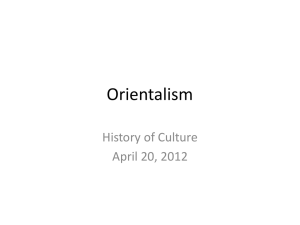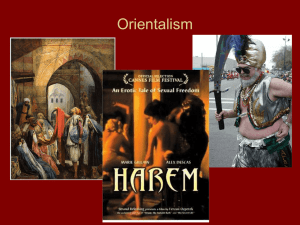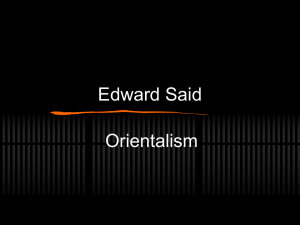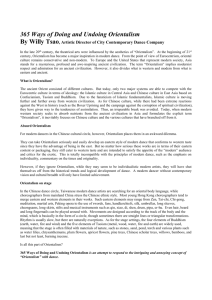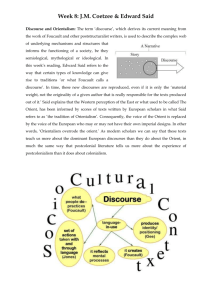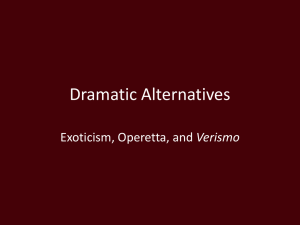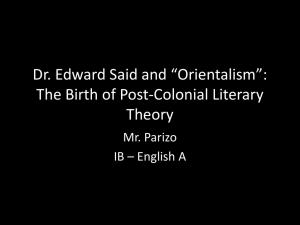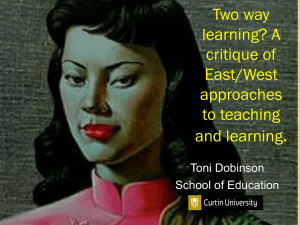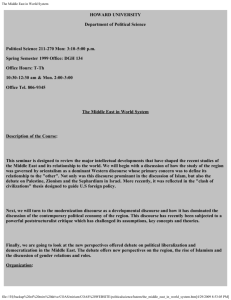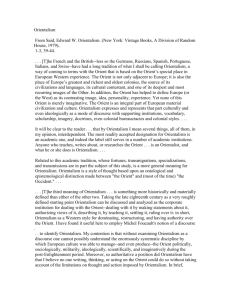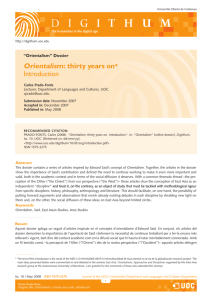INTERNATIONAL SYMPOSIUM
advertisement
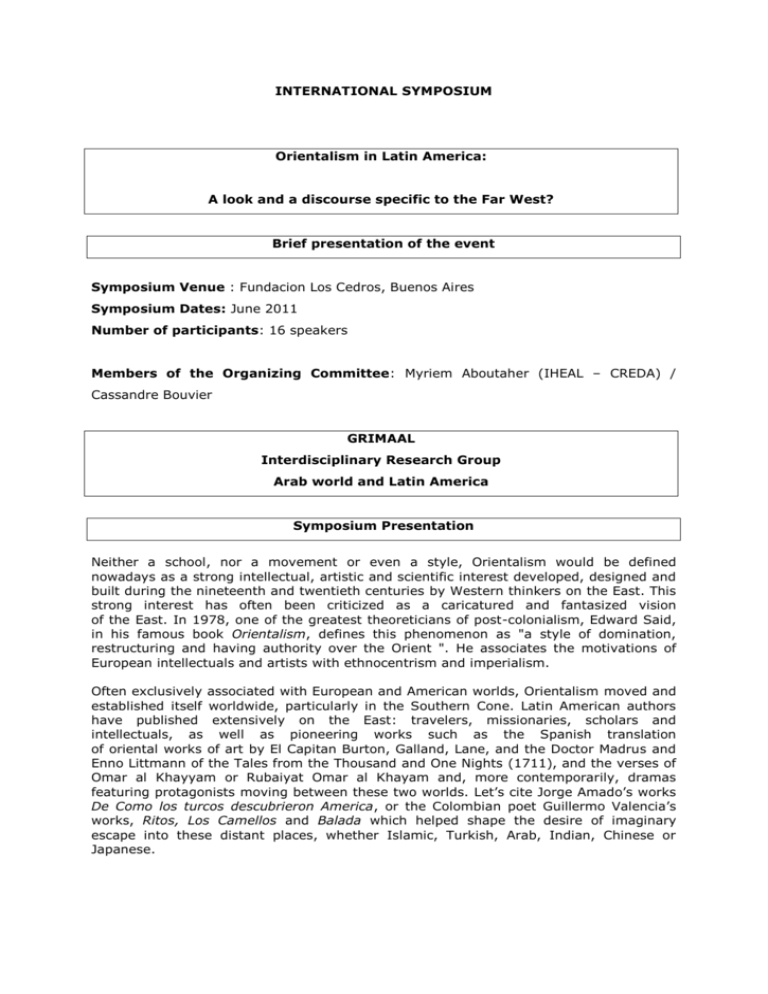
INTERNATIONAL SYMPOSIUM Orientalism in Latin America: A look and a discourse specific to the Far West? Brief presentation of the event Symposium Venue : Fundacion Los Cedros, Buenos Aires Symposium Dates: June 2011 Number of participants: 16 speakers Members of the Organizing Committee: Myriem Aboutaher (IHEAL – CREDA) / Cassandre Bouvier GRIMAAL Interdisciplinary Research Group Arab world and Latin America Symposium Presentation Neither a school, nor a movement or even a style, Orientalism would be defined nowadays as a strong intellectual, artistic and scientific interest developed, designed and built during the nineteenth and twentieth centuries by Western thinkers on the East. This strong interest has often been criticized as a caricatured and fantasized vision of the East. In 1978, one of the greatest theoreticians of post-colonialism, Edward Said, in his famous book Orientalism, defines this phenomenon as "a style of domination, restructuring and having authority over the Orient ". He associates the motivations of European intellectuals and artists with ethnocentrism and imperialism. Often exclusively associated with European and American worlds, Orientalism moved and established itself worldwide, particularly in the Southern Cone. Latin American authors have published extensively on the East: travelers, missionaries, scholars and intellectuals, as well as pioneering works such as the Spanish translation of oriental works of art by El Capitan Burton, Galland, Lane, and the Doctor Madrus and Enno Littmann of the Tales from the Thousand and One Nights (1711), and the verses of Omar al Khayyam or Rubaiyat Omar al Khayam and, more contemporarily, dramas featuring protagonists moving between these two worlds. Let’s cite Jorge Amado’s works De Como los turcos descubrieron America, or the Colombian poet Guillermo Valencia’s works, Ritos, Los Camellos and Balada which helped shape the desire of imaginary escape into these distant places, whether Islamic, Turkish, Arab, Indian, Chinese or Japanese. Most of these famous Latin American authors depict an Orient oscillating between reality and imagination. Similarly, several Latin American universities have developed a more scientific thinking through many laboratories specialized in the East, as the National Autonomous University of Mexico or the University of Buenos Aires. Yet, few books have developed and criticized this Hispanic Orientalism specific to the Far West. Why? What are the specifics of this Orientalism? What are the common parts that make it closer or make it diverge from the "classic" Orientalism? Would it be insofar stripped of any geopolitical interest? The theme of this symposium is to focus on Orientalist thinking in Latin America. An Orientalism spared, as it seems, from the critics of imperialism and ethnocentrism. What are the differences in viewpoints between European Orientalism and Latin American Orientalism? Where does Orientalism stand nowadays? Did it reach the end or is it still evolving? What are its main characteristics? During these two days, we would like to discuss Orientalism in Latin America. To this respect, we have identified four areas: Perspective 1: Orientalists according to Edward Said: lover but hegemonic. Criticizing the European Orientalism. Perspective 2: The characteristics productions. of Latin American Orientalism through literary and artistic Perspective 3: Imaginations, representations and discourses: How the imagination of Latin Americans vis-à-vis the East? did the Orientalists shape Perspective 4: Orientalism and geopolitics. The symposium languages are French, Portuguese, English and Spanish. Proposals (maximum 350 words) are to be sent to the following address: grimaal.iheal @ gmail.com by februray 15, 2010, with the following information: name and surname, telephone, e-mail address and a brief presentation of the author.
